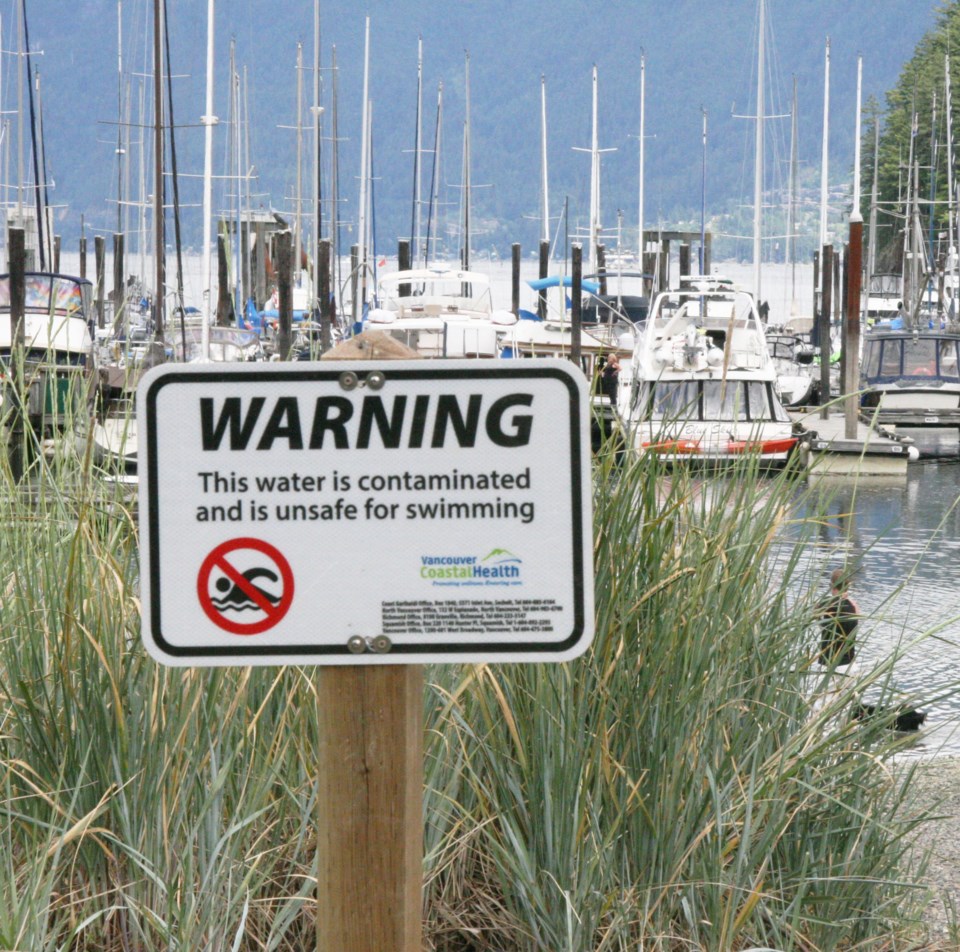Snug Cove beach has reopened for swimming after retesting of the water this week by Vancouver Coastal Health found E.coli bacteria levels to be within an acceptable range.
Elevated E.coli bacteria levels found at Snug Cove beach recently promoted health officials to post a sign on June 24 advising people against swimming in the water there.
Beaches are closed to swimming whenever levels of E.coli (an indicator organism associated with sewage contamination) rise above 200 bacteria in 100 millilitres of water. Snug Cove beach recorded a 277 E.coli count at the end of June.
When E.coli levels creep past 200, anyone who swims in the water is at an elevated risk of contracting a gastrointestinal illness, according to VCH.
Bowen Island Municipality helps to monitor water quality by collecting a minimum of five samples each month in the summer from the local beaches and submitting them to a provincial lab for testing.
VCH then interprets the results, based on federal guidelines for recreation water quality, to come up with an average E.coli count over the 30-day period.
The Snug Cove swimming advisory will be rescinded when the E.coli numbers get back under 200 with an established downward trend, said VCH environmental health officer Nader Massoud on June 29.
Last year Snug Cove beach had a posted water warning from June 11 to Sept. 26.
As for the E.coli culprit, Massoud said it’s tough to point to any one cause. “There could be several sources, everything from sewage, storm water, agricultural runoff, so those are some of the potential reasons that would cause these elevated (E. coli) counts,” said Massoud.



